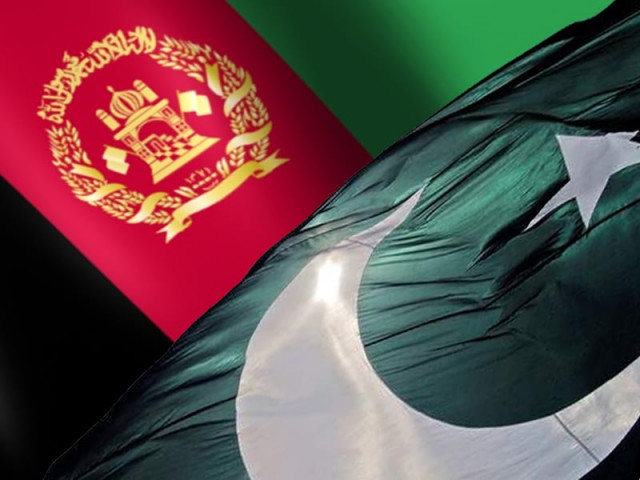Afghanistan 2014: Consequences for Pakistan
'In best of circumstances, we will be faced with influx of another 2 million refugees,' says former diplomat Shaikh.

The flags of Afghanistan and Pakistan. PHOTO: FILE
As President Hamid Karzai refuses to sign the bilateral security agreement, and the Obama administration threatens to pull all of its forces out of Afghanistan in the absence of the agreement, the future for the country, it seems, remains unclear.
Last year’s panel discussion on Aghanistan in 2014 and its resulting consequences for Pakistan, panelist and Pakistani diplomat Riaz Mohammad Khan had stated rather ambiguously that “the crystal ball is opaque.” Well, the crystal ball is foggier now than ever.
Will Afghanistan be able to stand on its own feet or will it inadvertently revert back to the state before the foreign occupation? With the presidential election so close and the US as yet to be in agreement with the Afghan government on maintaining its forces post-2014, will they be able to reach an agreement before the elections? And most importantly, what will the resulting consequences be for Pakistan?
Former high commissioner of Pakistan to the United Kingdom and former two-time ambassador to the United States, Maleeha Lodhi, quoted Allama Iqbal to emphasise the importance of stability in Afghanistan for Pakistan. The national poet once referred to Afghanistan as the ‘heart of Asia’. She paraphrased the poet who was of the view that “conflict in Afghanistan means turmoil in the entire neighbourhood and peace in Afghanistan means prosperity for all of Asia.” She summarised, “challenges are enormous and the uncertainty is great.”
Former Pakistani diplomat Najmuddin Shaikh rendered a gloomy picture for Afghanistan and as a result of Pakistan. The presence of the US was generating a great deal of economic activity for the people of Afghanistan. For example, the high paying jobs at NGOs that were previously available for the locals are going to disappear and the people in search of employment prospects will begin to think of ways out of the country. “In the best of circumstances, we will be faced with the influx of another 2 million refugees.” Shaikh also says if there is no US aid the deterioration will be even greater.
Shaikh paints a grim future for the Afghan National Security Forces (AFNS). The US have currently pledged to contribute $4.1 billion for the AFNS which currently stands at 350,000 soldiers. The funds provided will be able to maintain just about 230,000 soldiers, which would mean that unless the US puts up an additional $ 2 billion - which remains highly unlikely - or that the remaining 120,000 soldiers will be dismissed and on the street with their only remaining skill to offer being knowledge on how to wield a gun.
The consensus remained that the refugee problem will be an inevitable outcome of the withdrawal and Pakistan will need to be prepared.



















COMMENTS
Comments are moderated and generally will be posted if they are on-topic and not abusive.
For more information, please see our Comments FAQ